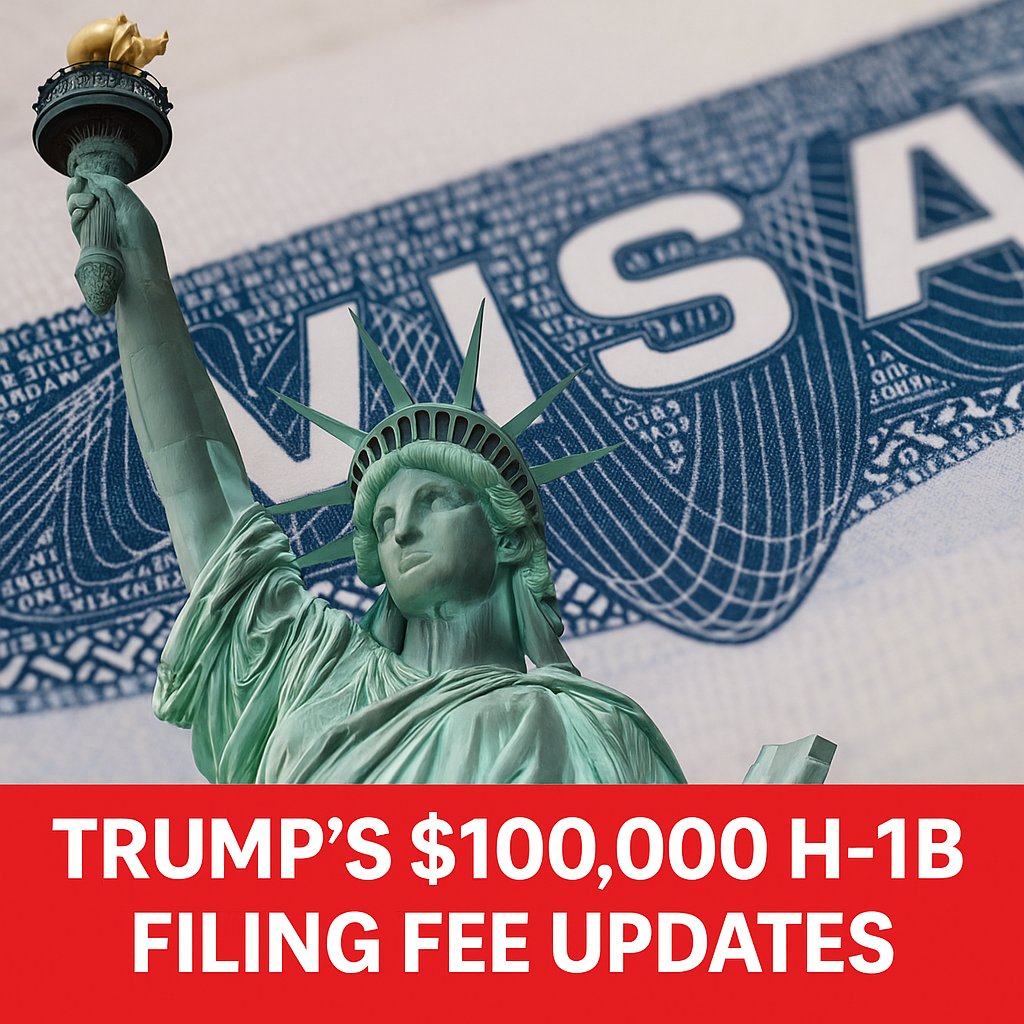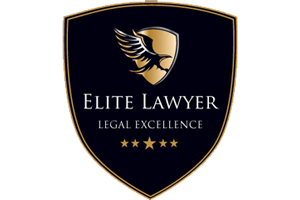- Free Consultation: (213) 251-5533 Tap Here to Call Us
Trump’s $100,000 H-1B Visa Fee UPDATES: Legal Limits, Policy Impact, and What Employers Need to Know

By Thomas Lee, Esq.
Immigration and Employment Attorney
Lee Law Offices, APLC — Los Angeles, California
The recent clarification from U.S. Citizenship and Immigration Services (USCIS) regarding President Trump’s proposed $100,000 H-1B visa fee has generated intense discussion across the immigration and business communities.
According to the new USCIS guidance, the $100,000 fee applies only to new H-1B applicants who are living outside the United States, not to those already residing lawfully in the country.
This distinction substantially limits the reach of the policy and highlights the statutory constraints on executive power in immigration law. For employers, international graduates, and immigration lawyers, the implications are both practical and constitutional.
The Legal Framework Behind the H-1B Program
The H-1B visa program, established by the Immigration and Nationality Act (INA) under 8 U.S.C. §§ 1101(a)(15)(H)(i)(b) and 1184, allows U.S. employers to hire foreign professionals in specialty occupations.
Congress has authorized several specific filing fees — such as the ACWIA training fee, the Fraud Prevention and Detection Fee, and other supplemental fees — but it has not authorized a new six-figure visa surcharge.
To justify the new fee, the administration invoked INA § 212(f) (8 U.S.C. § 1182(f)), the same authority used for the 2017 travel ban. That provision allows the president to suspend or restrict entry of certain noncitizens if their admission is deemed “detrimental to the interests of the United States.”
However, § 212(f) does not authorize the imposition of new visa fees. It governs exclusion, not taxation. The proposed $100,000 charge therefore raises significant ultra vires concerns — actions beyond what the statute permits — and may also implicate the Appropriations Clause of the U.S. Constitution, which reserves fiscal authority to Congress.
Why USCIS Narrowed the Rule
The agency’s clarification that the fee applies only to individuals abroad is a tacit acknowledgment of these limits. Section 212(f) can regulate only the entry of foreign nationals, not the status adjustments of individuals already within the United States.
In 2024, government statistics show that about 54 percent of new H-1B visas were granted to applicants already in the United States, often international students transitioning from F-1 Optional Practical Training (OPT) to H-1B status. These individuals will not be subject to the $100,000 fee.
This means that more than half of all H-1B applicants will be exempt, and the financial impact will fall mainly on employers hiring directly from abroad.
Who Is Affected by the Policy
The policy’s practical effect is to distinguish between two categories of H-1B employers.
Technology firms, hospitals, and universities that hire graduates from U.S. schools will not be impacted, as those workers are already present in the country.
By contrast, IT outsourcing and consulting firms that recruit workers overseas — many based in India — will bear the full $100,000 cost. These firms have long been targets of bipartisan criticism for allegedly undercutting domestic wages, though empirical evidence for such claims remains inconclusive.
Potential Legal Challenges
Legal challenges to the policy are already emerging, with business groups such as the U.S. Chamber of Commerce and healthcare associations arguing that the fee exceeds the president’s authority. Several legal theories are likely to surface:
- Ultra Vires Action: The Executive Branch lacks statutory authority to impose new fees without congressional approval, violating both the INA and the Appropriations Clause.
- Administrative Procedure Act (APA) Violations: The fee appears to have been implemented without proper notice-and-comment rulemaking, contrary to 5 U.S.C. § 553. Courts have repeatedly invalidated similar “guidance-by-press-release” policies.
- Equal Protection Concerns: The disproportionate impact on Indian nationals could support an argument of discriminatory intent under the Fifth Amendment’s Due Process Clause.
Broader Policy and Economic Implications
This policy illustrates a familiar pattern in Trump-era immigration actions: sweeping announcements that generate political resonance but crumble under legal scrutiny.
Although framed as an effort to “prioritize American workers,” the $100,000 fee primarily penalizes companies that recruit skilled talent abroad while sparing those employing U.S.-educated graduates already in the domestic labor market.
From a policy standpoint, the measure functions less as an economic reform than as political theater. It sends a message of deterrence without achieving meaningful change in the structure or purpose of the H-1B program. Supporters of the policy might argue that the President has broad authority over visa issuance under Kleindienst v. Mandel, 408 U.S. 753 (1972), and Trump v. Hawaii, 138 S. Ct. 2392 (2018). They may contend that a large fee serves as a screening mechanism to ensure employers are fully invested in sponsoring foreign talent.
The Rule of Law Prevails
The narrowing of the $100,000 H-1B fee confirms an enduring legal principle: immigration policy cannot be remade through executive proclamation alone.
Congress retains the sole authority to legislate visa categories, eligibility requirements, and fee structures. Executive action that exceeds those bounds invites judicial reversal.
As Stuart Anderson, Executive Director of the National Foundation for American Policy, aptly observed, “They may have wanted a broader policy, but the law simply doesn’t support it.” His remark captures the essential nature of this episode — a symbolic attempt to reshape immigration law without the statutory foundation to sustain it.
The ultimate effect of the policy, therefore, is limited. Employers and universities sponsoring foreign graduates within the United States remain unaffected, while companies dependent on offshore hiring must navigate both the cost and the uncertainty of pending litigation. Whether or not the rule survives court review, it stands as a clear reminder of the constitutional balance between executive ambition and legislative authority.
Disclaimer: This article is for informational purposes only and does not constitute legal advice. For a free consultation with Attorney Thomas M. Lee, please call (213) 251-5533








